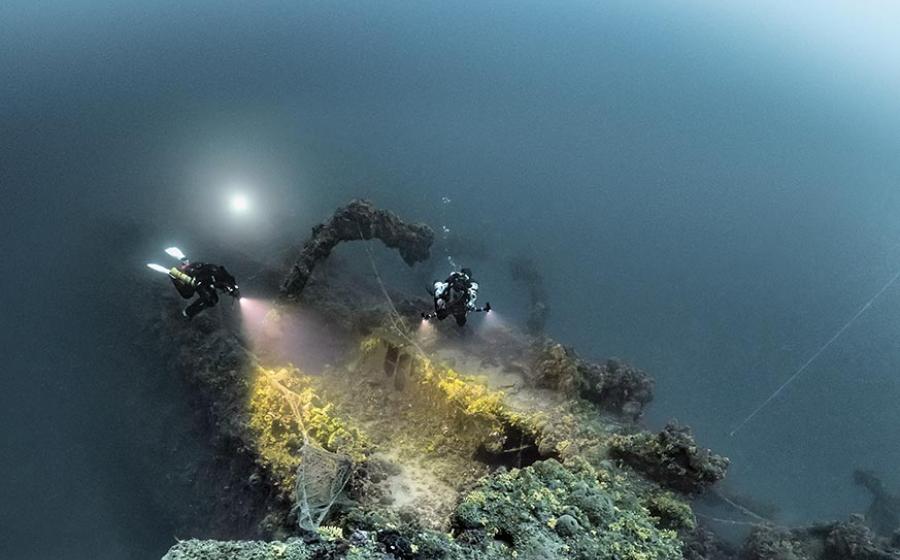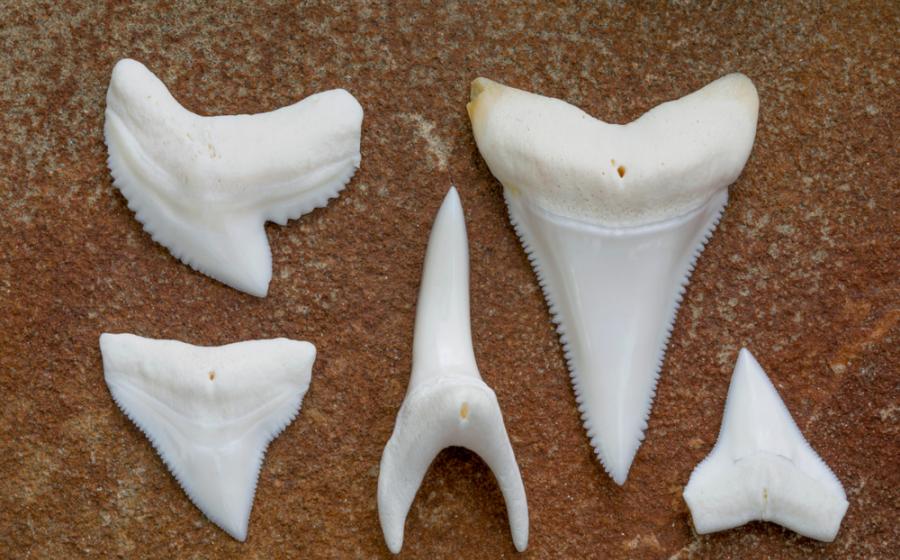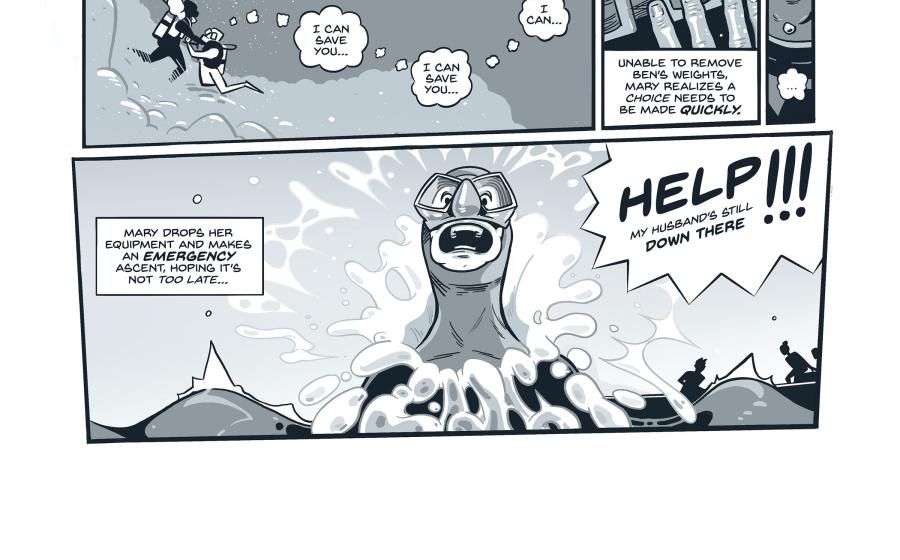How to Connect to Your Local Diving Scene
“Wherever you live, there are waters nearby waiting to be explored—local shores, lakes and quarries shouldn’t be underestimated,” says Jennifer Small, global public relations manager at PADI. “Divers can find unexpected surprises, wildlife and beauty right in their own backyard.”
It’s a beauty often overlooked. In pursuit of glamorous logbook entries, many divers forget their local waterways.
That’s changing. More divers are turning to their often-overlooked yet vibrant local diving communities, the ones who organize your neighborhood beach clean up or an underwater photoshoot on a Sunday morning.
Here’s how traveling divers can connect with the underwater community right next door.
1. Call your local dive shop
Looking to find the best regional sites and nearby dive buddies?
“Your local PADI Dive Centers or Resort is a great resource to connect with the local dive scene,” says Small. “They are a wealth of information and know these sites better than anyone — and are excited to share it with local divers who are looking for a new way to make the most of life close to home.”
Dive businesses are also the perfect place to connect with other people who enjoy diving in your area.
“I’ve met many friends by hiring guides and working with local dive shops,” says Jennifer Idol, the first woman to dive all 50 states. “Local dive shops are the epicenter of passionate divers who love to explore their local dive sites… [The dive professionals there] often dive every week and if they aren’t available to dive with you, they often know who would love to meet another dive buddy.”
If you are unfamiliar with the dive shops in your area, find one near you with the PADI Dive Shop Locator and give them a ring.
2. Leverage social media
“Social media is going to be one of the top platforms to connect with other divers,” says Dan Dawson, owner of Key Largo’s Horizon Divers. Facebook groups exist for local dive clubs, specific dive sites, divers with specific interests like shipwreck diving in the Great Lakes, and more. Joining an online community can connect you with neighborhood dive buddies and provide a forum for up-to-date dive information. Divers often use these groups to swap photos and stories from their most recent dives and Dawson, for example, pops into local dive pages to answer questions about the day’s dive conditions.
That access to up-to-date local intel is one of the best parts about local diving, says Dawson. On vacation, you get the conditions you get, but when diving where you live, you can be more choosy about the weather, water conditions, visibility, and location before making a last minute call to hop in the water.
Recommended groups:
- Scuba Diving Gear Discussion and Tips
- Scuba Diving Travel and Tips
- Learn to Dive
- Dive Travel
- Divers Around the World
- PADI Torchbearer Community Hub
3. Sign up for a new certification
If you’ve always flown halfway around the world to dive, chances are your local conditions are pretty different. Taking a new certification course keeps you submerged while expanding your dive abilities to unlock new waters. Consider a drysuit course if you are going to start exploring cooler inland waters, or an altitude diver course if you live in the mountains but have only ever dove at sea level.
4. Join your local dive club

Shutterstock.com/Roy PedersenJoining your local club connects you with other divers interested in exploring nearby sites.
Whether it’s run by your local dive shop or emerged organically on social media, there’s likely a group of divers in your area that get together to frequent nearby sites. Becoming a member of the club connects you with other divers while letting you get in on upcoming dives.
“While it can be intimidating to connect with a tightly knit group of established divers, they all appreciate another great dive buddy too,” Idol says.
If there isn’t a club near you, then you could be the founder your diving neighbors are waiting for!
5. Become a dive volunteer
Taking part in a volunteer dive can help you connect with other local divers while improving your own home. Connect with a nearby dive shop, suggests PADI’s Small, to get information about their local conservation efforts, like planting coral nurseries or beach clean ups. COVID-19 makes group gatherings more difficult, but shops like Horizon Divers continue to organize Dive Against Debris events for locals.
Every community’s needs are different, so do some research about what efforts are ongoing in your area. You might just spend your next Saturday scraping up overpopulated urchins or surveying your local fish!
6. Explore online
You know what kind of diving you want to do better than anyone else. Use that to guide your own online research of local dives that will suit your interests. Scout around Scuba Diving magazine’s local diving and North America resources, and check out our collection of state-specific dive guides.
7. Plan a drive-and-dive trip
Travel restrictions don’t have to mean the end of vacation planning; the humble staycation is making a comeback. Get together with the new friends you’ve made at your dive shop or club to identify sites within driving range or a long weekend or overnight trip. Dive shops three towns over are as happy for your tourism dollars as operators across the ocean.
Sites vary from town to town, but one thing remains the same - the dive scene exists thanks to local divers.
“The local community is what keeps everything going,” says Dawson. From filling tanks to training new divers to discovering the new sites below the river’s surface, local divers lay the foundation for every dive adventure.
Related:










